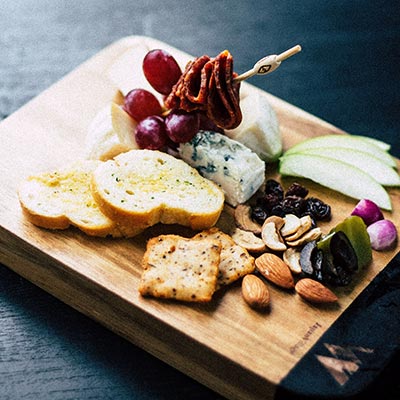writer
Definition: A rare living organism, spotted most often in their natural habit of used bookshops but occasionally rehabilitated to exist in suburban towns or cities. Possessing a power for turning caffeine into the written word, writers are shy but loyal pets.
Writers are a peculiar breed, loving yet sometimes high-maintenance, aloof yet needing constant attention. A solitary creature, they still need the basics of sunlight, food, water, and the occasional social interaction (mostly for sparking creativity).
While pats on the head are acceptable, as are casseroles dropped off at the front door, writers have other needs as well that can go largely ignored by the uneducated masses.
If you are lucky enough to own one of these special persons, whether by marriage or childbirth or by adopting one at your local library, there are some things you must know to keep your writer happy, healthy, and thriving.
How to Train Your Writer
Space

Writers need an area where they can be left alone to blossom, creatively speaking. They need silence from the hustle and bustle of everyday life; even normal noises that non-writers don’t take note of – like the honking of a car horn, the whistle between someone’s teeth, the dripping of a faucet – can cause the writer to retract further into their shell, causing depression, severe mood swings, and even hibernation.
Allowing your writer to have his or her own space for their typing away at their keyboards is a must for their health and well-being. This space needn’t be overly spacious or decorative, as writers are easily distracted from their tasks and can get lost in a curtain pattern without much nudging.
It is also best to limit their office supplies, such as colorful pencils, paper clips, erasers, post-it notes, and the like. In fact, these trinkets can serve as excellent rewards for your writer should they accomplish the task they insisted they would accomplish that day.
Once you have provided your writer their space, it is best to leave them along even if they suddenly develop a suspicious longing to spend time with you. This is a condition known as Procrastination and it is best not to negotiate with your writer if this ailment befalls them. Simply leave them to their space and let them cry it out. You must be firm on this or they will learn that they can manipulate you and you will find yourself experiencing symptoms of Procrastination as well.
DIET

Writers exist solely on snacking. They do not have the time to devour elaborate meals when they are writing.
Watching your writer try to pound out a 5,000 word deadline while eating spaghetti is a sight no owner wants to see. Therefore, snack foods –much as you would feed a toddler – are sure to please.
Ask your writer whether they prefer sweet or salty (many writers need both at once), and then be prepared to stock your pantry and also their personal writing space (see above). You will find that you will want to avoid sticky sustenance as it does not clean well out of a keyboard and is more trouble than it is worth (exception to this rule: alcoholic beverages which the writer will take persnickety care not to spill).
Snacks that have a long shelf life are key for success in feeding your writer: there will be days when your writer will find his or herself with a lack of appetite due to Writer’s Block, Severe Depression Over the Death of a Character, a Pending Rejection Letter Approaching, the Sudden and Overnight Success of Someone Else Who Writes Way Worse Than Your Writer Does, and the like.
To avoid spilt and spoiled foods, look for snacks that do not need refrigeration and whose expiration dates are several weeks away. We recommend beef jerky, nuts, dried fruit, granola bars, apples, and bourbon.
Praise

While beautiful and aloof, writers have a low self-worth that can only be tamed by giving them lots of compliments and praising their writing.
This is especially true of authors, while the more grounded free-lance writers and their non-fiction cousins can exist with a mere thumbs up or a vague promise to read their writings soon.
Novelists, however, due to their over breeding by the Victorians and their dramatic flair, need constant attention and praise.
But be careful how and when you apply your praise: too much will be flung aside in a fit of disbelief by your writer, and too often will cause them either grave arrogance or severe mistrust. On the other hand, too little will cause symptoms of lethargy, listlessness, paranoia, and constipation.
Practice applying your praise in the mirror before applying it to your writer. Strive for sincerity, simplicity, and if needed, distraction in the form a snack food (see above).
Do not be too frequent with your praising; three or four times a week should do the trick to keep your writer appropriately cheerful.
Occasionally, ‘forget’ to praise. After all, a perfectly happy and contented novelist is no novelist at all.
Communication

Writers do not enjoy talking about their work. They want to tell you a story but they don’t want you to be in the same room looking at them while they do it. They are trapped by desiring desperately for their owners to be a part of their process, yet instantly retreating into their shells the moment that attempt is made.
Let your writer know that you would love to hear about their project, but only when they are ready to tell you about it. Then of course, you must be prepared that the moment they wish to tell you about it will be in the dead of night when you are trying to sleep.
No one ever said owning a writer would be easy.
CONCLUSION
In short, writers are a special addition to anyone’s life, if you have the education, space, and knowledge to take proper care of them. Trained well, writers will bring a sense of joy and happiness to your home, and the special care they require will be well worth it in the end.
Side-effects may include irritation, loss of privacy, questionable things in your computer’s search history, talking to oneself, inexplicable crying, loss of office supplies, bursts of laughter at inappropriate times, allergic reactions including blocked tear ducts, dry coughs, lack of bookshelf space, overdrawn bank accounts, overdue library fines, pasty skin due to lack of sunlight, poor social skills, paranoia, and in rare cases, death. If you or a loved one have experienced these, you may be entitled to compensation, paid solely in used paperback collections.
Ask your doctor if owning a writer is right for you!
PIN IT





